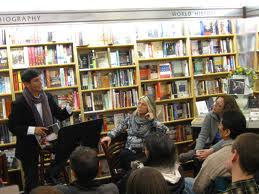Wall vignette, Chapel of Sangarará
Translated by Lynn Levin
I am the apocryphal archangel.
I am the pariah whom the lay folk call
Angel-prince of hail
Hidden in the dim chamber below the choir
in the ornate lunette of a cupola
I spill over my nook: a leaf covered with soot
from the smoke of the church candles
There is not much
landscape here: a tree
just enough land on which to stand
this is the only ground allotted him
Roman boots, short tunic
flowing cape
a hermit thrush
commands my coat of arms
I do not belong to the heavenly hierarchy
to the angelic choirs of cherubs, thrones, powers
who play their lutes or violas
da gamba: these figures
are purely
embellishments in the Pompeian style
I am the bastard bereft of my heritage
In their language the parishioners
mispronounced
my outlawed name
Anonymous, unbroken
I recline in the soft grass
weary in the late afternoon
like the lowliest sort of worker who all day long
stamped
and stamped again the loads of clay
for brick making
I am the apocryphal archangel
I am the pariah whom the lay folk call
Angel-prince of hail
Notes:
Baradiel is an obscure angel-prince mentioned in the Book of Enoch, a non-canonical scripture.
Sangarará is a small village located in the Cusco region. Sangarará was the site of a battle fought in 1780 between indigenous rebel forces led by Túpac Amaru II against the Spanish Colonial army. Túpac Amaru II’s rebels triumphed in this battle.
This poem is from Odi Gonzales’s collection La Escuela de Cusco [The School of Cusco], (Santiago de Surco, Peru: Ediciones el Santo Oficio-Gráficos, 2005). This translation by Lynn Levin was first published in Poetry Miscellany.



No Comments